|
Deus Caritas est: God is Love. How many times have we heard this simple yet profound theological truth in a homily, story, or teaching? How many times have we taken this for granted? In a world where truth often seems subjective, God’s love remains a refreshing and comforting constant in the Christian life. If this were not so, for what purpose, let alone by what means, would you or I exist? It is this perfect love of God which sustains us each and every moment of eternity. In fact, it’s God’s very nature, so bursting with love, that wills us into being. So too must our love for our neighbors guide and give purpose to our lives. The liturgical season of Lent is an especially wonderful opportunity for us to reorient ourselves towards God’s love and mercy. As we prepare to celebrate the ultimate expression of love the world has ever known this liturgical season, we may give up something we fleetingly desire in order to be made more aware of our need to depend on the One Love, the True Love, the Infinite Love. Of course, we can do more throughout Lent, but take to heart the suggestion of my bishop: [T]his Lent, fast and abstain when the Church requires it; give something up to make room for God and his mercy to fill you. Pray more and pray deeply and whenever you can because God listens to you: prayer puts you in touch with God and his mercy. Do something good for someone else every day; resolve to care about someone else every day, because God does, Jesus does and wants you to be like him, loving and full of mercy. Don’t make this Lent a complicated regimen of resolutions and promises that will unravel a week from now. Make it simple. Make it real. [emphasis added] Lent is not a time of self-pity or bemoaning our spiritual shortcomings. To fail to acknowledge God’s willingness to have mercy and forgive the sinner of his or her faults places sin as the end without further hope of relief, restricts one’s view of God as having limits on his love, and risks committing a sin against the Holy Spirit (i.e. believing that the magnitude of a sin is greater than God’s power— and continuous willingness— to forgive [cf CCC 1864]). While Lent brings to mind the classic images of sackcloth and ashes, the Lord desires something much more personal than just the recognition of our sins—“sincere, heartfelt repentance, change of heart, conversion” is what each of us is called to offer the Lord with the same Love He offered to those He encountered in His earthly ministry and ultimately from the Cross. “I desire mercy, not sacrifice,” our Lord, echoing the words of the prophet Hosea, declares to the Pharisees during the calling of Matthew (cf. Hosea 6:6) For us today, these words still ring true. Lent is not an easy time, but it invites us to shake us out of our spiritual complacency if we are to answer the Lord’s call to conversion. This may be uncomfortable. Receiving the ashes on our foreheads tomorrow, however, signifies our commitment to God that we will endeavor each day—and not just until Easter Sunday—to change our lives to be (once again) oriented towards God in avoidance of the sin and distractions which lead us away from His love. While we seek forgiveness from God, we are also to freely forgive others, “And forgive us our debts, as we also have forgiven our debtors.” Even if we fall along the way, the important thing is to pick ourselves up and start again— the Lord is patient! In closing, let us reflect on a final word from the Venerable Fulton Sheen: God loves you despite your unworthiness. It is His love which will make you better, rather than your betterment which will make Him love you. … Say to yourself over and over again, regardless of what happens: “God loves me!” And then add: “And I will try to love Him!” (Fulton Sheen, Remade for Happiness: Achieving Life’s Purpose through Spiritual Transformation (San Francisco: Ignatius Press, 2014), 187, 25.)
0 Comments
 Sometimes it is not one or the other, but rather both/ and. I have been thinking and praying about this a lot over the last two weeks. I live on Capitol Hill in Washington D.C. and have witnessed some of the largest marches and demonstrations that I have seen in the last twenty years. I’ve also been reading a lot of signs that the marchers and protesters carried. If you looked only at the signs, you would think we live in a world defined by competing principles and all of us are being called to take sides and battle it out until one side goes down in defeat. This serves no one well.Some of our most volatile issues of the day are not a battle of competing goods, but rather a battle that accepts no middle ground. We often lack the humility to recognize we might actually be talking about complementary principles and goods. For example, take the question of immigration. Most people would agree that a country has a right to secure its borders and most people agree that we have an enormous problem at present where many people’s homelands have become unlivable. Most people would agree that people have a right to seek justice and peace, in a safe community. It seems the discussion we should be having is how we manage to control our borders and respond to the need for safe passage to safer communities for millions of refugees who are displaced from their homelands. Who is having that conversation? Well, the Catholic Church, for one! Our faith is grounded in balancing in a life-giving creative way the tension of both/and. After all, we talk about how belief is rooted in faith and reason. We believe that justice should be wrapped in mercy. We know that with sin, there is always the possibility of grace. This ability to see the complementary goods has never been on bigger display than this past week. The week began with the United States Conference of Catholic Bishops issuing a strongly worded statement opposing President Trump’s executive order on Immigration. They write “We strongly disagree with the Executive Order’s halting refugee admissions. We believe that now more than ever, welcoming newcomers and refugees is an act of love and hope.” Here the Church draws on its principles of Catholic Social Teaching which holds both the right of people to migrate to “sustain their lives” and the right of a country to “regulate its borders and control immigration” (Catholic Social Teaching on Immigration and the Movement of Peoples). In the same week, many bishops and Catholic Pro-Life marchers welcomed the presence of Vice-President Pence who supports the work of the Pro-Life Movement. The Church both preaches against the sin of abortion and the right of every woman to have all the support she needs from the government and community to bring her child into the world. The Church will continue to advocate against abortion and, through ministries like Project Rachel, offer healing and hope to women and men touched by the experience of abortion. These two issues in the span of a week, highlight what many people find so confounding about the advocacy of the Catholic Church on behalf of social issues. We seem to some to be “always changing sides.” And that is just it, we don’t take sides. We stand in the truth of the Gospel of Life. Rather than getting tied up in political platforms and ideologies, the Church looks to the Gospel and in the harmony of truth and reason seeks always and everywhere to protect the dignity of the human person through the exercise of mercy and justice. Now, more than ever, our country needs the wisdom of a church that can navigate toward the common good by exercising both/and. We need to identify the common good within the issues on which we are so quick to take sides– and work together toward a shared good. What does a country look like that has a secure border and the ability to welcome people seeking peace, a job, a place for their children to thrive. What do support networks look like that would say we are a community who know women deserve better than having to choose an abortion and can provide for their care. What does a country look like that can promote the dignity of the human person and the common good of the community? These are questions that the Church has thought about for centuries and has some wisdom to share. Pope Francis believes that sharing that wisdom is part of our mission to the world today. He writes in The Joy of the Gospel, “Despite the tide of secularism which has swept our societies, in many countries – even those where Christians are a minority – the Catholic Church is considered a credible institution by public opinion, and trusted for her solidarity and concern for those in greatest need. Again and again, the Church has acted as a mediator in finding solutions to problems affecting peace, social harmony, the land, the defense of life, human and civil rights, and so forth. And how much good has been done by Catholic schools and universities around the world! This is a good thing! (65). Today, we all have an opportunity to bring this good thing to bear in our conversations and in our advocacy. Let’s be one of those schools! This post was originally published on the St. Joseph's College of Maine Theology Blog and was re-published with permission.
Deep Breath In, Deep Breath Out Have you had a chance today to think about God’s love? No? Well, do this with me… Deep breath in. Deep breath out. With every breath we take, we know we were made for here, for right now, this time, this century, not by accident, but for a purpose. The first paragraph in the Catechism of the Catholic Church beautifully explains, “God, infinitely perfect and blessed in himself, in a plan of sheer goodness freely created man to make him share in his own blessed life. For this reason, at every time and in every place, God draws close to man. He calls man to seek him, to know him, and to love him with all his strength.” (Emphasis added.) Did you read what the Catechism reminds us? God draws close to man! Can you believe this? No? Hey that’s ok! It’s hard for me to comprehend too, but do this with me… Deep breath in. Deep breath out. It is unnerving that we, His children, can go day-to-day and not really live out of the understanding that we were made by love, for love, to love. At the graduate school I attended, the chaplain for our program would constantly remind us of this fact. On days when my mind was worn down, when I was struggling with anxiety or doubt, I would stumble into his office and explode the complexities of my mind onto him (poor fellow). Ever so gently, he would stop me in my rambling and say, “deep breath in, deep breath out.” He explained to me that the mere fact that we can breathe is a clear sign of the Father’s love, “because if He forgot about you for a millisecond, you would not exist.” He is loving us into existence with every breath we take. Deep breath in. Deep breath out. Do we really live as though the creator of the universe, the creator of love, the Father of heaven and earth has made us, loves us here? If I lived in this simple, yet mind-blowing truth, I think the day-to-day would be less burdensome and my exterior circumstances would not define my level of contentment. My life would be colored with purpose because I was made for love, by love. Are you stressed? Does the state of our world or society bring you fear? Are you looking for fulfillment? Do you desire to be loved? Are you waiting for your vocation? Do this now… Deep breath in. Deep breath out. You were made for here, you are necessary for now, and you are loved into existence because the Father loves you. “We are not some casual and meaningless product of evolution. Each of us is the result of a thought of God. Each of us is willed, each of us is loved, each of is necessary.” –Pope Benedict XVI Leadership is essential for a healthy and holy Church. From St. Peter to Pope Francis where would our Church stand today without the great and gifted leaders through the centuries? Leadership in the Church, including local parishes, is not immune from the kinds of temptations leaders face in any institution. Based on my experience, I’d like to consider three temptations many leaders face framed by J.R.R. Tolkien’s classic Lord of the Rings series. It is my hope that understanding and being aware of these temptations will lead to a stronger, more unified Church grounded in the love of Christ. The Pursuit of Power “The road must be trod, but it will be very hard. And neither strength nor wisdom will carry us far upon it. This quest may be attempted by the weak with as much hope as the strong. Yet it is oft the course of deeds that move the wheels of the world: Small hands do them because they must, while the eyes of the great are elsewhere.” (The Fellowship of the Ring) Tolkien’s story relies on some rather homely and “weak” characters—hobbits—to carry out a great task: destroying the magic ring to save Middle Earth. We normally identify leaders by their exceptional strengths and talents. We use popular tools like strength and personality finder tests to help us identify our unique gifts. Using our gifts and talents to build up the Body of Christ is prudent and life-giving, but we should not too quickly assume God only wants to use our human strengths to bless or lead his Church. In fact, God often builds up the Church by using our weaknesses. He entrusted the building of His Church, afterall, not to the rabbis and scholars of his time, but to simple men, fishermen. As St. Paul frequently preached, cross-shaped leaders learn to live first out of their weakness and dependency on the power of the crucified Lord: “Consider your own calling, brothers. Not many of you were wise by human standards, not many were powerful, Rather, God chose the foolish of the world to shame the wise, and God chose the weak of the world to shame the strong… I came to you in weakness… so that your faith might rest not on human wisdom but on the power of God.” (1 Cor 1:26-27; 2:3,5). Knowing our weaknesses helps us as leaders to not fall into the temptation of the pursuit of power. Christ is glorified in our human weakness and can transform it for the building up of His kingdom. The Allure of Ambition “You are so wise and powerful, will you not take the ring?” “No!” cried Gandalf, springing to his feet. “With that power I should have power too great and too terrible.” (The Fellowship of the Ring) The allure of the ring is the promise of control, but the great wizard Gandalf understands the power of the ring inevitably ends up controlling the wearer. True leaders develop habits of cooperation and collaboration in ministry and are quick to deflect praise and thanks onto others. Because leaders are in a position to influence outcomes and events, however, some can be tempted to an unhealthy ambition. Sometimes, it can be tempting to view parish ministry as a stepping-stone to a bigger, better career in the church or name recognition. Unhealthy ambition can also feed a spirit of competition and criticism between churches that undermines our call to communion. One of my go-to prayers to combat this attitude is called the Litany of Humility. It is a good practice to periodically check our focus and drive. Does our work stem from a love of Christ and His Church? Are we seeking God’s greater glory or our own? Masking Immaturity “All that is gold does not glitter, Not all those who wander are lost; The old that is strong does not wither, Deep roots are not reached by the frost.” (The Fellowship of the Ring) I had a friend who out of college was given the responsibility of the youth ministry program at his home church. Unfortunately, early on he made a financial mistake that ruined a popular trip and drew harsh criticism from parents and staff alike. Unable to cope with such treatment, he resigned from ministry shortly after. Rather than seeing failure or mistakes as reasons to give up, these can be seen as important opportunities for growth and maturation. A young church is surely a sign of a healthy and growing church, but that doesn’t make it a mature church. While the freedom to take risks and make mistakes is an indispensable part of learning, leaders should surround themselves with team members who are varied and diverse in their ministry experience. For those who are relatively new to working for the Church, I suggest finding a faithful mentor or spiritual director with whom you can share struggles and receive encouragement. As Tolkien notes above, the Church needs wise, mature men and women to walk alongside its young, teaching patience and perseverance in order to grow deep roots. Thanks to many gifted and faithful leaders, our Catholic Church indeed has deep, strong roots. By knowing and understanding a few temptations leaders can face, we can help our Church become more faithful and stronger. Pray for our church leaders, that God may give them the grace to be wise, humble, gracious, and joyful examples of the call to be more obedient followers of Jesus. *The blog post below was co-authored by Nicholas and Alyce Shields, who have been married since June 2015. The italicized text was written by Alyce, while the rest was written by Nicholas.
Almost 11 years ago, Alyce and I walked into our first high school class together and the rest was history… just kidding. While I wish it was that easy, living out your vocation is never easy. Although we are each called to a vocation by virtue of our Baptism, discerning that vocation is no mean feat. It takes time, patience, and community. Pope Francis said in his message for the 53rd Day of Prayer for Vocations, “Vocations are born within the Church … Vocations grow within the Church … Vocations are sustained by the Church.” The Body of Christ provides a wonderful example for us of the diversity of our vocations, and our church community is beautiful place in which to discern. Discernment is a very personal journey, yet we can greatly benefit from looking to one another and to those who have made this journey before us for guidance. Not only can we look to our priests and religious, but to our parents and grandparents as well! Discernment is not restricted to the priesthood or religious life, but also includes the call to marriage or consecrated single life! Alyce and I did not enter marriage blindly; we discerned our calling, discussed it with our family, friends, priests, and with each other before we took the next step. Because we discerned our vocation together, we strengthened our faith and developed our relationship with each other while being centered on Christ. What did that discernment look like? While it’s different for many, for us, it took waiting and time. In our four years of dating long-distance, God taught us patience and dependence on him. Nicholas and I learned of God’s faithfulness, that his love and promises are never outdone in generosity. In the many days of waiting, I found myself relying on the hope that if God calls something to be, He will make a way. Additionally, the greatest “I love you” that Nicholas and I would say for each other was this: “I’ll see you in the Eucharist.” This means that as members of the Body of Christ – which is the community of the Church that Nicholas previously mentioned – we are united through Jesus in his physical presence even though we were over a thousand miles apart. We learned that our identities reside in Christ and that our gaze must be fixed on him. This outlook, a relationship centered on Christ, does not just apply to dating and discernment, but also on marriage and family life. We have gotten engaged, survived long-distance, gotten married, are awaiting the birth of our first child, and we are still working to keep our lives centered on Christ. Living our vocation means that day after day, we must see each other in the Eucharist. In both times of joy and sorrow, our marriage has been strengthened through shared prayer and reliance on Christ. When we slack on the effort of making Christ the priority, we find ourselves bitter and sluggish. When we cling to Christ, we are more in tune with each other and find that we really live out the goal of helping each other get to heaven. With Christ, we can serve each other with the truest of loves and find confidence in God’s promises continually being revealed to us. We are so blessed to be journeying towards God together and sharing his love with those we encounter. None of this is easy, but it is necessary and worth it. For inspiration, Alyce and I often look to the Holy Family as a model of how we want our own marriage and family to be. Mary and Joseph had total trust in the Lord and put their lives in His hands. We strive to do this each and every day as we pray together, encourage each other, and serve one another. No matter where you are in your discernment, we encourage you to keep Christ at the center, to pray, and to trust in the Lord. Pope Saint John Paul II put it best, “Love Christ and love the Church! Love Christ as he loves you. Love the Church as Christ loves her. Do not forget that true love sets no conditions; it does not calculate or complain but simply loves.” Alyce Shields is a teacher and Nicholas Shields is a Young Professional in Washington, D.C. They have been married since June 2015. Sometimes it’s easy to feel a little bit lost in Ordinary Time. We know that during Advent we are preparing our hearts and homes to celebrate the joys of Christmas. We light the candles of the Advent wreath, we sing Advent hymns, send Christmas cards, and prepare our Christmas gifts. During Lent, we fast, pray, and focus on giving what we have whether that be time, talent, or alms. We usually know that it is a time to repent and focus on daily mortifications that will draw us into a closer relationship with our Triune God and lead us to a beautiful celebration of the mysteries of our faith. So, what happens in the quiet stillness of Ordinary Time? I have recently come to be both terrified and in awe of this passage of time. Reflecting on the purpose and importance of this liturgical period, I am reminded of the story of Simon, James, and John in Luke 5: 1 - 11. The skill and trade of fishing is a perfect analogy for us. Fishing requires knowledge, skill, practice, patience, and, possibly above all, trusted intuition. Let us imagine this scenario as it unfolds. Simon, James, and John have been working throughout the night. They are no doubt exhausted and deflated when Jesus asks them to go out yet again. How often do we feel like this? How often do we feel God nudging us to try one more time, to keep going, to persevere? How do we respond to that? Do we quietly take our boat back out onto the water? Or do we rail against his request? In Luke 5: 4, Jesus does not simply ask that the boats be taken back out. He specifically asks Simon to “put out into deep water…” Where are the deep waters in our life? Where are the areas that Jesus is calling us that we cannot touch or perhaps not even see the bottom? The interchange that follows is striking. After Jesus asks Simon to lower his net, Simon replies that they have worked throughout the night and have caught nothing, “but at your command I will lower the nets.” Are we trusting Jesus enough in our lives to lower our nets of prayer, spiritual, or physical action when we have been toiling and have failed to see the fruits of our labor? After the resurrection, Jesus again meets His disciples in this way in John 21. After an uneventful day of fishing in the sea of Tiberias, Jesus instructs the disciples to cast their nets back into the water. They did not even recognize him at first but did as He instructed. The catch was so full that they struggled to pull it in. In both instances, Jesus requests His disciples to take action just one more time before giving up. Ordinary Time is our time of action and risk taking. This is our chance to act on our belief in God, the belief that we profess and strive to deepen during Advent and Lent. Are we praying and living as if we truly believe that the Triune God is all powerful and miraculous? Are we using the term, “Thy will be done” as a contrite spiritual, physical, mental, and emotional submission to His divine will and purpose or are we praying those words in the hopes that He will take action so that we can remain in our comfort zone? What open sea do we need to cast our net into? What prayer have we given up on because we’ve forgotten that God exists outside of time? This is when we put into action all that we’ve seen and heard. He is speaking our name, inviting us to trust Him, to “put out into deep water” and cast our net. "Good morning and welcome! Today, we celebrate the Xth Sunday in Ordinary Time. Please stand and join in singing hymn number…" Most of us will hear these words, or words very close to them, for over thirty Sundays a year. After the joyful season of Christmas, it can seem too ordinary, almost boring, to return to Ordinary Time in the Liturgical Year. Instead of the extraordinary stories of Christ's birth in the Incarnation, we've gone back to the Jesus stories many of us grew up hearing: Jesus healing lepers, chastising Pharisees, and preaching to crowds. While Jesus’ ministry is anything but ordinary, our familiarity with the stories of the Gospel often desensitizes us to their extraordinary depth and power. It’s much easier to see the seasons of Christmas and Easter, as well as Advent and Lent, as extraordinary. They're special seasons of the Liturgical Calendar, set aside to celebrate and reflect on the greatest mysteries of our faith: the Incarnation and the Passion and Resurrection of Christ. These liturgical times make us feel our faith in a more visceral way. There's nothing like the gut-wrenching Passion narrative or the beautiful story of the Nativity to set our hearts ablaze for Christ! But if our experience of the Christian faith was nothing more than an emotional high, we would never be able to see Christ in anything but the heavily emotional experiences. That's what Ordinary Time gives us: it sustains our faith between the emotional highs and lows of Christ's birth, death, and resurrection. It reminds us that God is often most present to us in our ordinary humanity. May we not forget that Christ himself lived ordinarily for thirty years as a carpenter’s son in Nazareth. It's in Christ's day-to-day ministry that He meets people where they are and experiences the human condition with them. When He forgave the woman at the well, it wasn't at a big celebration, but in the very ordinary act of gathering water. When He called Zacchaeus down from the sycamore tree, all He wanted to do was share a meal. When He flipped the moneychangers' tables at the Temple in anger, He was there for the weekly observance of the Sabbath. Ordinary Time isn't about the humdrum monotony of life. It's about the slow, incremental action of the Holy Spirit in our lives. It's about, as St. Vincent Pallotti said, seeking God in all things. Just as we get up every day and go to work, we are called to use Ordinary Time to get up every day and give our best to God. So what can we do to live Ordinary Time well? The options are endless! —Maybe you like studying Scripture, but don't know where to go deeper? Take a look at the practice of Lectio Divina. —If you feel a strong draw to the Liturgy, try attending Daily Mass once a week or following the Liturgy of the Hours. —Do you sense a call to serve more with more intentionality? Explore the needs in your community. It doesn't have to be a Church ministry to be service! After all, we're given the instruction to "Go forth!" at the end of every Mass. The beauty of our faith is that there are so many ways to experience God in our lives, to connect with Him and bring His message of love to the world. It doesn't matter which way we choose to work on our relationship with Him, so long as we do so with intention. A healthy challenge for us all might be to pick just one practice to begin making into a habit during Ordinary Time. May we invite God to shift our perspective on the “ordinary” and help us see His extraordinary presence and grace in our journey of faith! As we brought our firstborn son in a white gown to the church, I couldn’t help but think of Mary and Joseph - new parents who also came to God’s dwelling place with a newborn child. They were fulfilling the stipulations of the Mosaic law: Mary was completing her ritual purification after childbirth, and the couple was consecrating their firstborn son to God (cf Exodus 13:2). They, like my husband and I, were entrusting their child to God in faith, giving the Lord control over his destiny, reiterating, in a sense, Mary’s surrender in her Magnificat, “may it be done to him according to your word.”
The Feast of the Presentation of the Lord which we celebrate today is one of both great joy and great sorrow—a day of paradox. The glory of the Lord in a literal sense returns to the Temple in Jerusalem which had for so many years been vacant of his physical presence. God has come to renew his covenant and relationship with his people. His presence, however, is no longer confined to this Temple. He walks now among his people…as one of them – in this case, in the form of a child. All of Israel’s hopes are fulfilled in this one child. “My eyes have seen your salvation,” the holy Simeon proclaims in the Temple, “a light for revelation to the Gentiles, and glory for your people Israel.” The Jewish people’s spiritual exile from God has come to an end. This child, this sign of hope and restoration of Israel, however, is also a sign to be misunderstood and rejected. Simeon continues, explicitly telling Mary, "Behold, this child is destined for the fall and rise of many in Israel, and to be a sign that will be contradicted and you yourself a sword will pierce.” God was answering the many prayers and dreams of the Israelites in a way they could hardly comprehend: in the form of a lowly child who would grow up in a foreign country, who would come back to Nazareth and live as a poor carpenter’s son, who would grow to become a great prophet after thirty years and challenge the Jewish people to live more nobly than they could have ever imagined: to love their enemies and persecutors, to eat his Body and drink his Blood, to become sons and daughters of God, calling him “abba,” Father, and ultimately to attain salvation for the entire world. God often answers our prayer in ways unimagined or seemingly incomprehensible to us. Will we join in Simeon’s proclamation of salvation or will we be among those who reject this sign? “My eyes have seen your salvation” - this is at the heart of the Christian life. This is evangelization: an encounter with the living God that results in our conversion and proclamation of salvation. As Pope Francis said in last year’s homily on the Feast of the Presentation, “One who lives this encounter becomes a witness and makes possible the encounter for others.” After encountering Christ, we are able to reiterate the words of Simeon, “My eyes have seen your salvation.” Are you able to join in these words? In order to do so, we must prepare our hearts for an encounter with God. What I find crucial to the words of Simeon, which are followed by words of the prophetess Anna in the Gospel today, is the role of prayer and sacrifice to Simeon and Anna’s encounter. Years of fasting, offering sacrifice, going to the Temple, and forming a deep relationship with God in prayer all led to this pivotal moment of encounter in their lives. Furthermore, Simeon enters the Temple after the prompting of the Holy Spirit. He was so receptive to the stirring of God within his heart that he entered the Temple in the very moment he needed to. Both he and Anna were not in the Temple by accident. God had been preparing their hearts for years, and they had done everything in their power to cooperate with his grace through their holy actions: prayer, sacrifice, worship, thanksgiving. What do we bring to the Lord today as we celebrate the Feast of the Presentation? What do we place on his altar every time we attend Mass? Do we join the priest in offering sacrifice of praise, thanksgiving, or petition? Do we remember the needs of friends, family, or the world? Do we give God our joys, sorrows, stresses, or work? I invite you, the next time you go to Mass, to present yourself to the Lord. Spiritually place yourself on the altar, wherever you may be in your faith. Whether you feel a bit distant from God right now, seem to be in a comfortable place in your life, or are overwhelmed with fear or stress or worry—place whatever you have and whatever you carry on the altar this week and ask God to continue to transfigure you. We celebrate, in a sense, the Presentation of the Lord at every Mass—for we are presenting Jesus himself to God the Father in the Eucharist. And we are invited to join in offering our sacrifices to the Eternal Sacrifice of Christ crucified. Let us join the aged Simeon in saying, “my eyes have seen your salvation!” by imitating his deep life of prayer and sacrifice. And from there, may we proclaim the truth of God’s love to the world! |
Details
Archives
July 2024
Categories
All
|
About |
Media |
© COPYRIGHT 2024 | ALL RIGHTS RESERVED

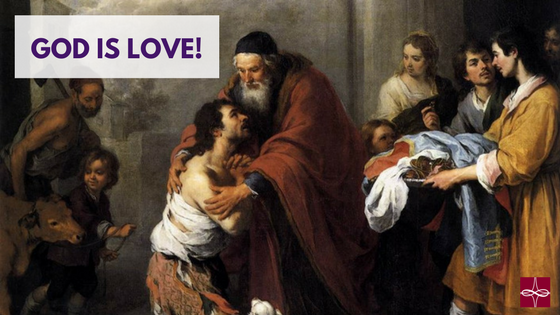

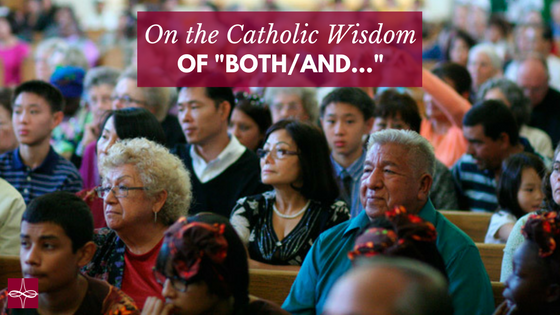

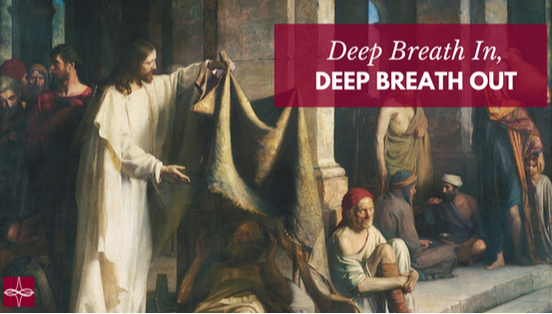

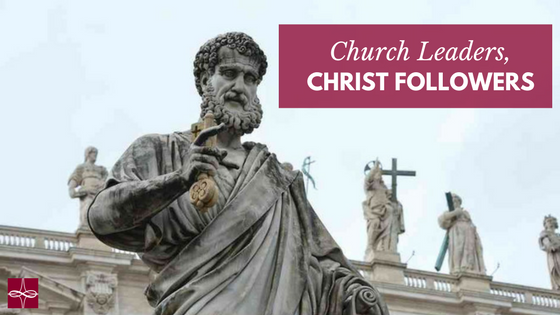
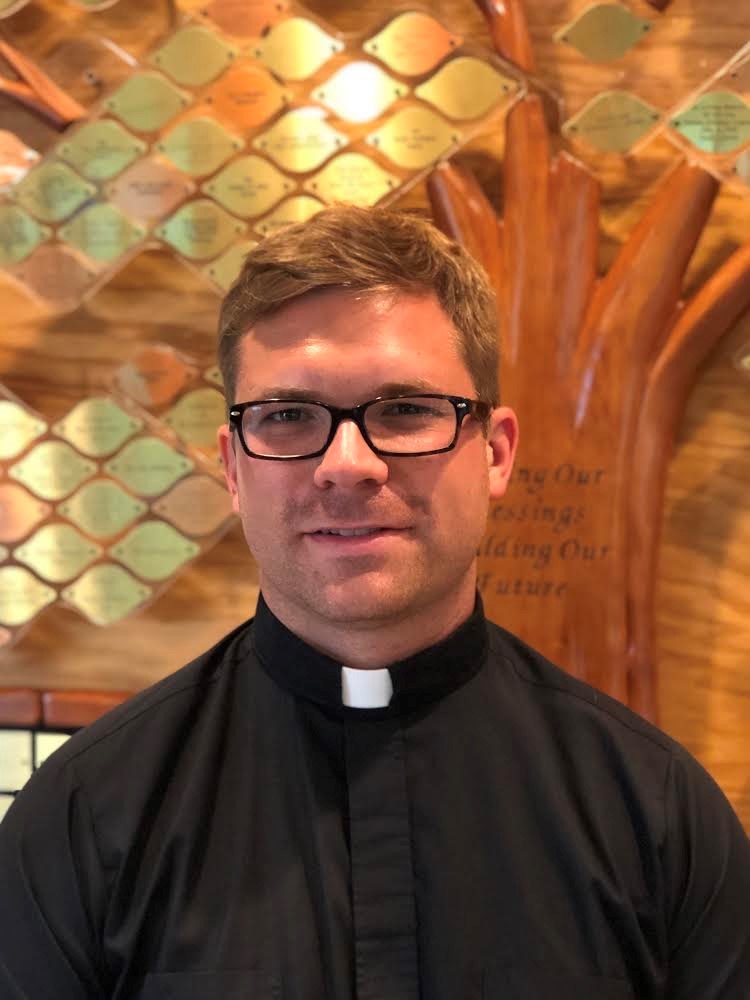



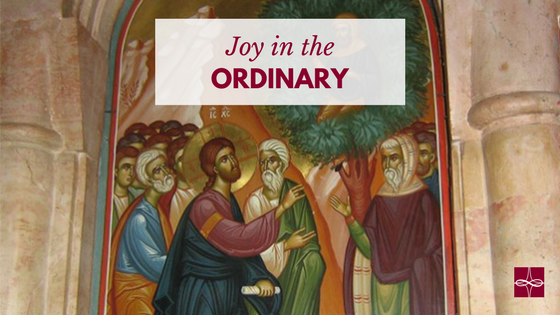

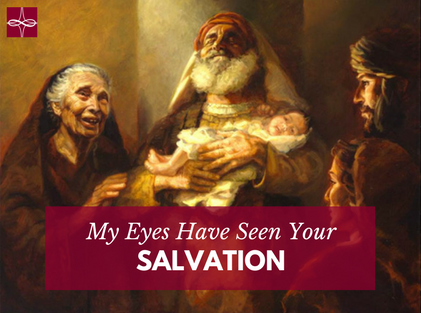

 RSS Feed
RSS Feed